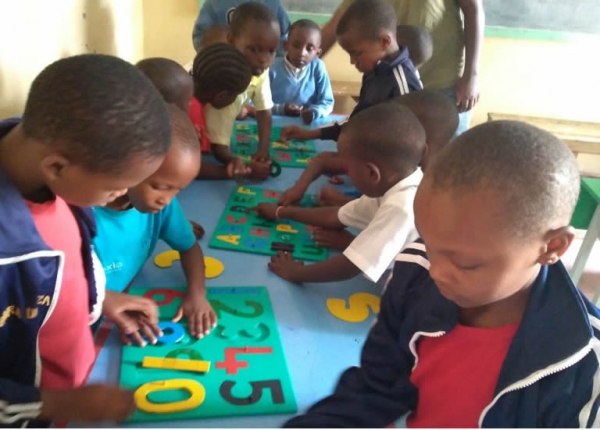Dyslexia is a specific learning difficulty which makes it difficult for a student to learn how to read and write in the conventional classroom environment. Many of the learners with dyslexia are unable to master the basic alphabets or even write their names. This is contrary to the expectations of the society. Teachers and parents exert pressure on the student hoping that this will remedy the problem, but, oftentimes, the pressure only worsens the situation.
The learner is pushed to do something that they don’t have the capacity to do. Researchers have pointed out that even with poor performance, the brain of people with dyslexia work five time more than that of people without dyslexia. To make the matters worse, the person who pushes them is an authority which they trust. There is always this question in these young brains--why cant I do what everybody can do? This kind of thoughts drain the self confidence. The learners feel abnormal, inferior, alienated and misunderstood, and to make the matter worse, the pressure does not stop. The teachers and parents push even harder. Sometimes the learners reach the breaking point.
Their sunshine of happiness stop shining. They become sad, anxious,irritated. They feel guilty and empty. They loose interest in their hobbies, and lack the ability to concentrate.
Another direct consequences of pushing the learners, against a wall that they cannot break through, is extreme behaviors. According to the American Society of Suicodology, people with dyslexia are four times more likely to have suicidal thoughts than people without dyslexia. The University of Toronto found that people with dyslexia have a 46% chance of committing suicide than people without dyslexia.
Another common trait in the young learners who cannot read is inferiority complexes. When you cannot do what every other person can do and you are rebuked by every grownup around you, you must feel inferior to other people who can do what you cannot do. This inferiority manifests in how these students act among other people. Their initiative is broken and they learn to imitate what their peers are doing.
Teenagers fall into drugs trying to escape stress. It is now know that more than half of all people in Juvenile Correction facilities have unidentified specific learning difficulty such as dyslexia.
People who cannot read are also disadvantaged because there is a lot of useful information in print which they cannot understand. They cannot read the bible, stories, novels and history. This limits their avenues personal development and limits their ability to lead despite having exceptional talents.
Even when they have useful ideas, they cannot be able to share them with a wider audience because they cannot be able to write them down. This limits their ability to contribute to the society.
There are two things which the society can do to support the learners who have dyslexia. Creating public awareness about dyslexia and accommodating students who have dyslexia in the education system.
Accommodation can be done by ensuring that every student is screened early enough for specific learning difficulties including dyslexia, and if the students is diagnosed, and a remedy is introduced early, pupils with dyslexia can catch up.
Statistics indicate that as many as twenty percent of the students may have dyslexia. Among this, only two percent are identified. Most of the remaining unidentified end up in penitentiaries. There are shocking statistics which indicate that a very large number of prisoners are dyslexic.
The current system of education where learners are ranked by grade is inappropriate for learners with dyslexia. This is because, in the current system, stragglers are not accommodated. Structured Literacy Programs, which are absent in regular schools, ensures that pupils learn at their own pace and not according to the expectation of their grade or age.
The problem of dyslexia is not only a problem of literacy. It is a problem that affects the mental, social and developmental well being of unidentified learners.
It is completely unfair to have a system of education which is not tailored to accommodate and give equal chances to all learners. The government should act quickly because more of this creative brains are being condemned into penitentiaries because we did not identify that their brains are wired to learn differently. Educators from all over the world should commit themselves to educating all the students and not a portion of them.
Phyllis Munyi is a director at Dyslexia Organisation Kenya
DYSLEXIA AND MENTAL HEALTH
© Copyright 2026 EdSource Africa by BIL


